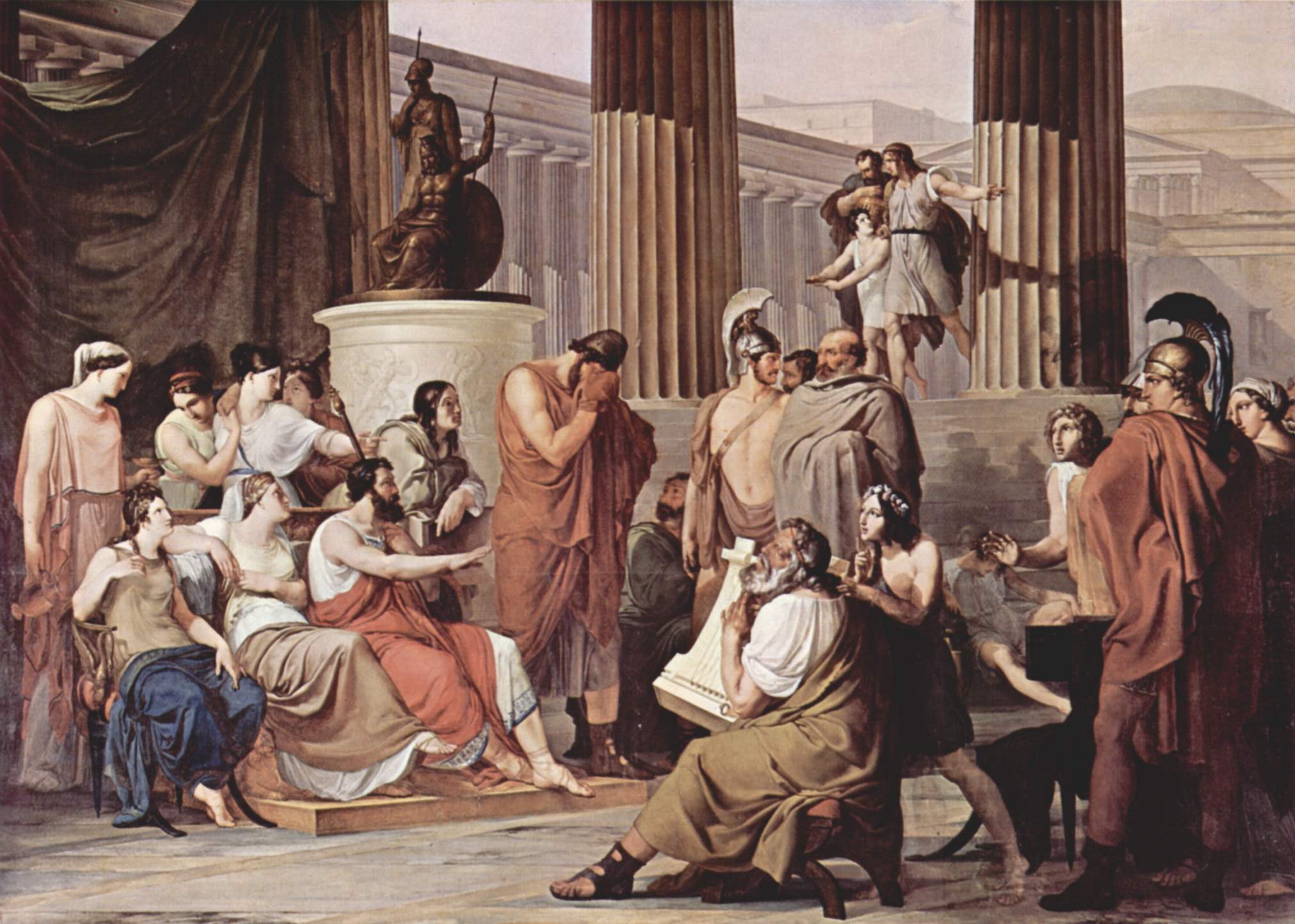
Frame story
A frame story (also known as a frame tale, frame narrative, sandwich narrative, or intercalation) is a literary technique that serves as a companion piece to a story within a story, where an introductory or main narrative sets the stage either for a more emphasized second narrative or for a set of shorter stories. The frame story leads readers from a first story into one or more other stories within it. The frame story may also be used to inform readers about aspects of the secondary narrative(s) that may otherwise be hard to understand. This should not be confused with narrative structure.[1][2][3] A notable example is The Decameron.
Use[edit]
To be a frame narrative, the story must act primarily as an occasion for the telling of other stories. For example, Odysseus narrates much of the Odyssey to the Phaeacians, but, even though this recollection forms a great part of the poem, the events after and before the interpolated recollection are of greater interest than the memory.[2]
A film that plays with frame narrative is the 1994 Forrest Gump. Most of it is narrated by Forrest to various companions on the bus-stop bench. However, in the last fifth or so of the film, Forrest gets up and leaves the bench, and we follow him as he meets with Jenny and her son. This final segment suddenly has no narrator unlike the rest of the film that came before it, but is instead told through Forrest and Jenny's dialogues.[23]
This approach is also demonstrated in the 2008 film Slumdog Millionaire (adapted from the 2005 novel Q & A), about a poor street kid named Jamal who comes close to winning Kaun Banega Crorepati (the Indian equivalent of Who Wants to Be a Millionaire?) but finds himself accused of cheating. Most of the story is narrated at a police station by Jamal, who explains how he knew the answers to each of the questions as the show is played back on video. The show itself then serves as another framing device, as Jamal sees flashbacks of his past as each question is asked. The last portion of the film then unfolds without any narrator.[24]